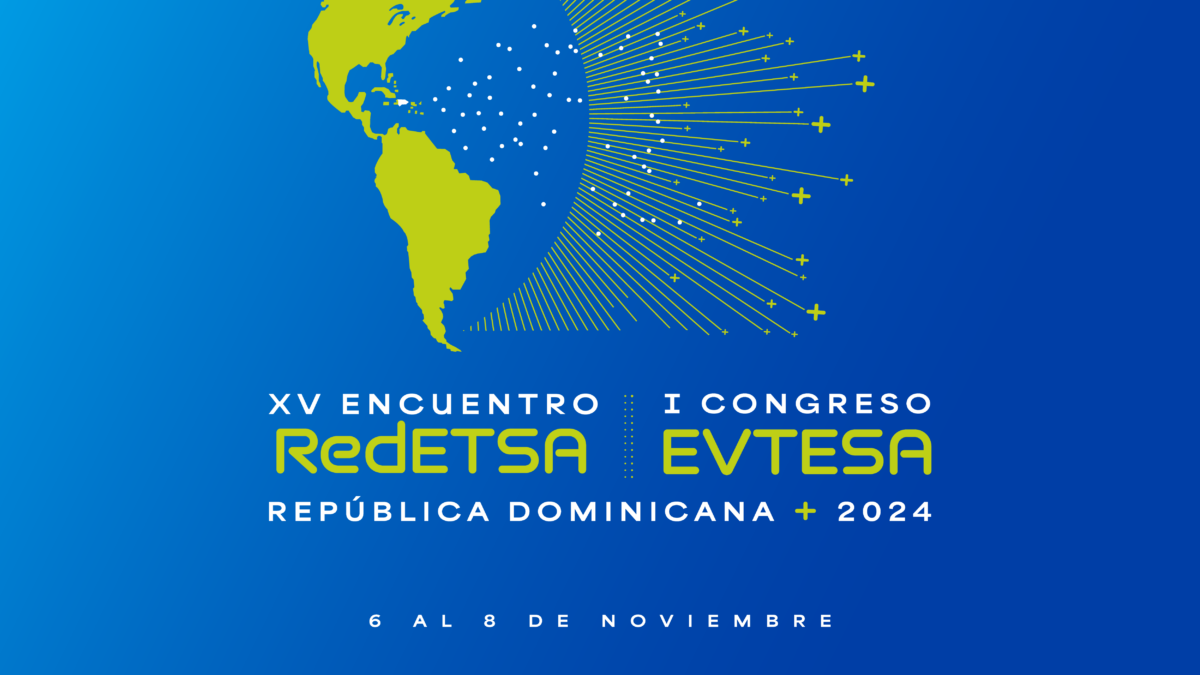
Next Webinar – 43rd Edition: “Methods and application of adaptive health technology assessment”
18 September, 2024
Upcoming Webinar – 44th Edition: “Promoting Equity in Health Technology Assessment”
March 12, 2025Santo Domingo, November 6-8, 2024 (PAHO) – The Pan American Health Organization (PAHO), through its Departments of Health, Innovation, Access to Medicines and Health Technologies (IMT), as Secretariat of the Health Technology Assessment Network of the Americas (RedETSA), is pleased to announce the “XV Regional Meeting of RedETSA”, which will take place in Santo Domingo, Dominican Republic, November 6-8, 2024.
The objective of this meeting is to promote discussion around Health Technology Assessment (HTA) through the exchange of experiences among specialists and managers from the Americas Region. At this event, we will address the fundamental processes related to HTA at different points in the life cycle of a technology, as well as other relevant key topics. The meeting will include an open scientific program, free workshops, in addition to the annual closed meeting among RedETSA members on November 8.
General Agenda and Methodology
The 3-day event will take place with different working dynamics:
- Tuesday, November 6th and Wednesday, November 7th in the morning: Open scientific sessions with different working methods:
- Panels of speakers with subsequent discussion: these will address a main topic where speakers will develop presentations on more specific topics or experiences from their country, supported by a slide presentation. At the end there will be a space for discussion with questions from the public.
- Short briefings by a single speaker, maximum 30 minutes long, with closing remarks from another expert.
- Roundtables on experiences: these will feature the participation of representatives from 4 to 6 institutions moderated by a facilitator who will ask specific questions to each country/institution according to the experience they want to highlight on the topic to be discussed in the roundtable.
- Wednesday, November 7th, afternoon: Three free, open workshops lasting 210 minutes will be held in parallel, given by specialists on the following topics:
- Equity in the processes of evaluation and incorporation of health technologies,
- Economic Evaluation and Budget Impact Analysis, and
- GRADE methodology.
- Thursday, November 8: Closed meeting of RedETSA members.
You can consult the complete draft Agenda of the event by clicking here.
Although this is an in-person event, the open scientific sessions on Tuesday 7th and Wednesday 8th will be broadcast live on https://www.youtube.com/@sisalrilrd
How to participate
Registration for in-person participation and more information about the event click here here
Context
One of the current challenges facing countries in the Region is the construction of integrated health systems with quality care that are equitable and efficient. In this context, the development of Health Technology Assessment (HTA) is essential for the generation of quality evidence that informs health decision-making as well as its effective implementation and monitoring of compliance. In addition, the links between HTA and decision-making processes are key to generating a real impact on health systems. To date, countries in the Region have established HTA with varying degrees of development and institutionalization.
An effective application of HTA, from an integrated approach that considers the entire life cycle of health technologies, requires that the components associated with the decision-making process – from evaluation to implementation and monitoring of their use – are explicitly integrated and act in a coordinated manner.
About RedETSA
The Health Technology Assessment Network of the Americas (RedETSA), created in 2011, is a network of ministries of health, regulatory authorities, HTA agencies, Collaborating Centers of the Pan American Health Organization, and educational and research institutions in the Americas, whose secretariat is held by PAHO, dedicated to promoting HTA to inform and support decision-making in health with the aim of contributing to equity in access to technologies and to the efficiency and quality of health systems. Activities include the exchange of information among its members, promoting the adoption of common methodologies, strengthening the capacities of human resources in HTA, establishing priorities for joint work, and the generation and dissemination of scientific evidence to strengthen the field of HTA.

